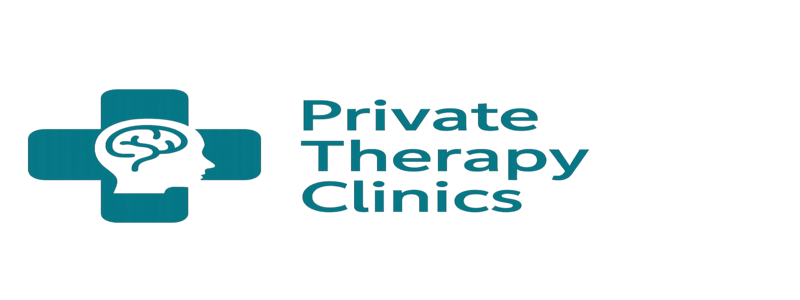
Whether a CEO must balance business decisions or a parent must deal with countless household choices, the experience of decision fatigue is remarkably similar across all spheres of life. Our brains are working hard to figure out what to eat, which emails to respond to, and how to arrange our schedules as soon as we wake up. By evening, the mental stress becomes so great that it becomes impossible to choose what to watch on TV.
This phenomenon, which is remarkably clear in its message—decision-making is like a muscle, and without rest, it falters—is described by therapists as a predictable cognitive drain rather than a personal failing. Here, therapy becomes extremely effective because it offers a reframed understanding of what is going on inside the mind in addition to coping mechanisms. Patients learn that avoidance, procrastination, and fog are signs of depletion rather than laziness.
Decision Fatigue and Therapy
| Category | Details |
|---|---|
| Definition | Mental exhaustion caused by making too many decisions, reducing clarity and control. |
| Daily Load | Over 35,000 small and large decisions made per day, gradually depleting mental reserves. |
| Key Symptoms | Procrastination, impulsivity, avoidance, irritability, and constant indecision. |
| Causes | Burnout, anxiety, trauma, perfectionism, digital overload, executive dysfunction. |
| Therapy Approach | Identifies hidden patterns, simplifies routines, reduces stress, clarifies values. |
| Common Tools | CBT, mindfulness, behavioral activation, decision frameworks, boundary setting. |
| Celebrity Examples | Barack Obama’s gray and blue suits, Steve Jobs’ black turtleneck—streamlined choices reduced fatigue. |
| Societal Factors | Increased digital notifications, multitasking pressure, complex modern living. |
| Benefits of Therapy | Restores clarity, increases resilience, empowers decision-making, reduces mental clutter. |
In order to save his mental clarity for more complex issues, Barack Obama famously kept his wardrobe to two suit colors. The same strategy was used by Steve Jobs, who wore jeans and black turtlenecks. These illustrations show how simplifying decisions can be very effective, a concept that therapists frequently use when assisting clients. Therapy helps patients free up important cognitive resources for decisions that really matter by teaching them how to automate bills, plan meals in advance, or streamline routines.
Decision fatigue has been considerably exacerbated by digital overload. Every email, social media scroll, or notification necessitates tiny choices that divide focus. As a result, the brain continuously switches between contexts, using up energy more quickly than it can be restored. Therapy assists individuals in identifying this invisible burden and establishing boundaries, such as shutting off pointless alerts, assigning minor chores, and making time for mental healing. These adjustments are especially helpful in the fast-paced world of today.
Decision fatigue may seem more severe to people with ADHD. Even small decisions require extraordinary effort when there is executive dysfunction. Decision frameworks and behavioral techniques are introduced in therapy, particularly coaching aimed at ADHD, which lessens paralysis and promotes momentum. Customers gain the ability to divide decisions into smaller, more manageable steps, which greatly speeds up and improves the process. This framework helps people regain their confidence and lessens the emotional toll that overthinking takes.
Public personalities have freely acknowledged that they suffer from cognitive overload. Oprah Winfrey has discussed the demanding decision-making that goes into running her media empire and has stated that therapy was essential to maintaining her efficacy. Recognizing that mental clarity off the court directly improves performance on it, athletes like LeBron James have made significant investments in mental coaching. Their experiences highlight how therapy aims to maximize energy and choices in addition to healing trauma.
One of the most potent lessons therapy can teach is self-compassion. Too frequently, people attribute their inability to make decisions to themselves, assuming that indecision is a sign of weakness. By validating the fatigue, a therapist presents a particularly novel viewpoint: decision fatigue is a valid mental state rather than a personal weakness. This insight is liberating, dispelling guilt, and making room for more constructive coping mechanisms.
Clarification of values is another focus of therapy. Decisions become less daunting when clients rediscover what really matters, such as family, creativity, and professional advancement. Therapy turns decision-making from a never-ending drain into a meaningful process by bringing choices into line with core values. This alignment is very adaptable, working for parents juggling household duties or executives dealing with business challenges.
Moreover, mindfulness is crucial. Therapy helps people stop worrying about the future by teaching them to focus their attention on the here and now. Mental clarity can be restored by deliberately choosing, breathing, and pausing. This method has proven to be very effective in reducing cognitive overload and providing patients with coping mechanisms for stressful situations.
Decision fatigue has wider effects that go beyond people. Leaders in politics, education, and healthcare bear a great deal of responsibility, and their cognitive decline can affect entire communities. Decision fatigue spread widely during the COVID-19 pandemic as a result of people’s constant uncertainty and shifting guidance. Private and group therapy gave people a way to process their worries and regain perspective. Therapy indirectly improves societies by helping individuals.
Another effective therapeutic technique is delegation. Henry Ford Health psychiatrist Dr. Lisa MacLean advises patients to delegate some decision-making authority to others, such as letting friends choose a restaurant, coworkers decide when to meet, or kids choose dinner. This not only lessens weariness but also strengthens bonds of trust. By demonstrating that no one succeeds by making all of the decisions alone, therapy helps reframe delegation as an indication of wisdom rather than weakness.
Practically speaking, therapy improves mental clarity by promoting resilience, simplifying routines, and clearing out cognitive clutter. Wide-ranging repercussions include improved decision-making in the workplace, calmer families, and more vitality for individuals. Therapy serves as the stabilizing force that turns overload into balance in a society that is always demanding choices.

